Ford Capri vs VW ID.7 - Differences and prices compared
Compare performance (340 HP vs 340 HP), boot space and price (36300 £ vs 46400 £ ) at a glance. Find out which car is the better choice for you – Ford Capri or VW ID.7?
Costs and Efficiency:
Price and efficiency are key factors when choosing a car – and this is often where the real differences emerge.
Ford Capri has a noticeable advantage in terms of price – it starts at 36300 £ , while the VW ID.7 costs 46400 £ . That’s a price difference of around 10033 £.
In terms of energy consumption, the advantage goes to the VW ID.7: with 13.60 kWh per 100 km, it’s barely noticeable more efficient than the Ford Capri with 13.80 kWh. That’s a difference of about 0.20 kWh.
As for electric range, the VW ID.7 performs to a small extent better – achieving up to 708 km, about 81 km more than the Ford Capri.
Engine and Performance:
Power, torque and acceleration say a lot about how a car feels on the road. This is where you see which model delivers more driving dynamics.
Both models deliver identical power – 340 HP each.
In acceleration from 0 to 100 km/h, the Ford Capri is hardly perceptible quicker – completing the sprint in 5.30 s, while the VW ID.7 takes 5.40 s. That’s about 0.10 s faster.
There’s no difference in top speed – both reach 180 km/h.
Both models offer the same torque – 679 Nm.
Space and Everyday Use:
Beyond pure performance, interior space and usability matter most in daily life. This is where you see which car is more practical and versatile.
Both vehicles offer seating for 5 people.
In curb weight, Ford Capri is somewhat lighter – 1914 kg compared to 2180 kg. The difference is around 266 kg.
In terms of boot space, the Ford Capri offers hardly perceptible more room – 572 L compared to 532 L. That’s a difference of about 40 L.
In maximum load capacity, the VW ID.7 performs barely noticeable better – up to 1586 L, which is about 76 L more than the Ford Capri.
When it comes to payload, Ford Capri distinct takes the win – 587 kg compared to 465 kg. That’s a difference of about 122 kg.
Who wins the race in the data check?
The Ford Capri holds a solid overall lead in the objective data comparison.
This result only shows which model scores more points on paper – not which of the two cars feels right for you.
Costs and Consumption
View detailed analysis
Engine and Performance
View detailed analysis
Dimensions and Body
View detailed analysis
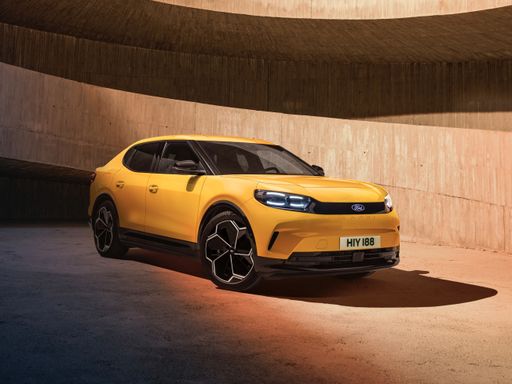
Ford Capri
Ford Capri
The Ford Capri turned the family car into something cheekily sporty, with a long, rakish profile that still promises fun at a glance. Today it lives on as a lovable classic — easy to tinker with, enjoyable to drive and guaranteed to raise smiles at any meet.
details
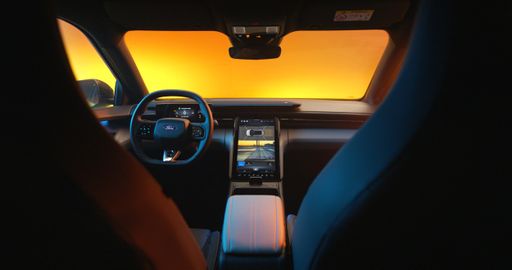
VW ID.7
VW ID.7 arrives as Volkswagen's electric grand tourer, pairing a low-slung, aerodynamic silhouette with a calm, understated interior that prioritizes comfort and space. It’s a sensible choice for buyers who want a relaxed, high-tech cruiser that covers motorway miles with poise rather than bravado.
details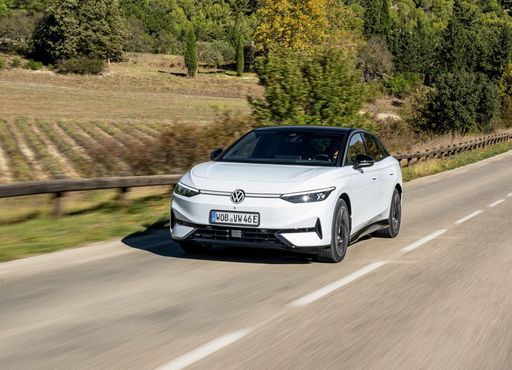
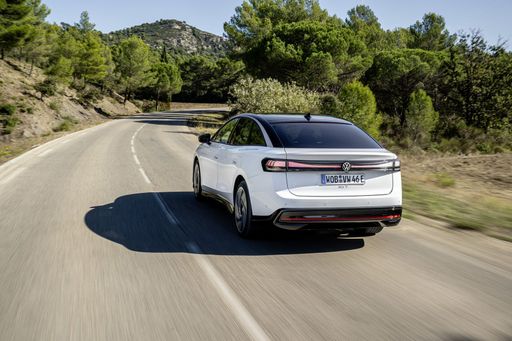
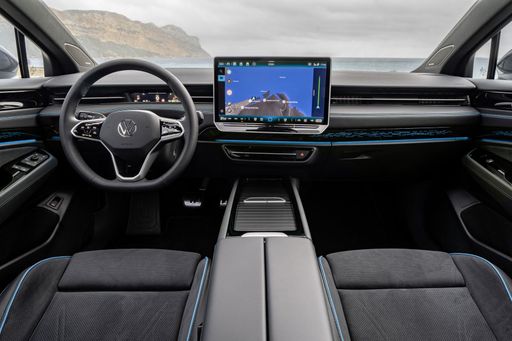
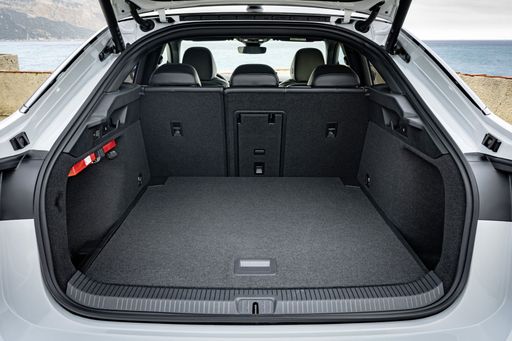
Costs and Consumption |
|
|---|---|
|
Price
36300 - 50900 £
|
Price
46400 - 54200 £
|
|
Consumption L/100km
-
|
Consumption L/100km
-
|
|
Consumption kWh/100km
13.8 - 16.4 kWh
|
Consumption kWh/100km
13.6 - 16.2 kWh
|
|
Electric Range
374 - 627 km
|
Electric Range
594 - 708 km
|
|
Battery Capacity
52 - 79 kWh
|
Battery Capacity
77 - 86 kWh
|
|
co2
0 g/km
|
co2
0 g/km
|
|
Fuel tank capacity
-
|
Fuel tank capacity
-
|
Dimensions and Body |
|
|---|---|
|
Body Type
SUV
|
Body Type
Hatchback
|
|
Seats
5
|
Seats
5
|
|
Doors
5
|
Doors
5
|
|
Curb weight
1914 - 2174 kg
|
Curb weight
2180 - 2325 kg
|
|
Trunk capacity
567 - 572 L
|
Trunk capacity
532 L
|
|
Length
4634 mm
|
Length
4961 mm
|
|
Width
1872 mm
|
Width
1862 mm
|
|
Height
1626 mm
|
Height
1535 - 1536 mm
|
|
Max trunk capacity
1505 - 1510 L
|
Max trunk capacity
1586 L
|
|
Payload
570 - 587 kg
|
Payload
460 - 465 kg
|
Engine and Performance |
|
|---|---|
|
Engine Type
Electric
|
Engine Type
Electric
|
|
Transmission
Automatic
|
Transmission
Automatic
|
|
Transmission Detail
Reduction Gearbox
|
Transmission Detail
Reduction Gearbox
|
|
Drive Type
Rear-Wheel Drive, All-Wheel Drive
|
Drive Type
Rear-Wheel Drive, All-Wheel Drive
|
|
Power HP
170 - 340 HP
|
Power HP
286 - 340 HP
|
|
Acceleration 0-100km/h
5.3 - 8.7 s
|
Acceleration 0-100km/h
5.4 - 6.6 s
|
|
Max Speed
160 - 180 km/h
|
Max Speed
180 km/h
|
|
Torque
310 - 679 Nm
|
Torque
545 - 679 Nm
|
|
Number of Cylinders
-
|
Number of Cylinders
-
|
|
Power kW
125 - 250 kW
|
Power kW
210 - 250 kW
|
|
Engine capacity
-
|
Engine capacity
-
|
General |
|
|---|---|
|
Model Year
2024 - 2025
|
Model Year
2023 - 2024
|
|
CO2 Efficiency Class
A
|
CO2 Efficiency Class
A
|
|
Brand
Ford
|
Brand
VW
|
Is the Ford Capri offered with different drivetrains?
The Ford Capri is offered with Rear-Wheel Drive or All-Wheel Drive.




